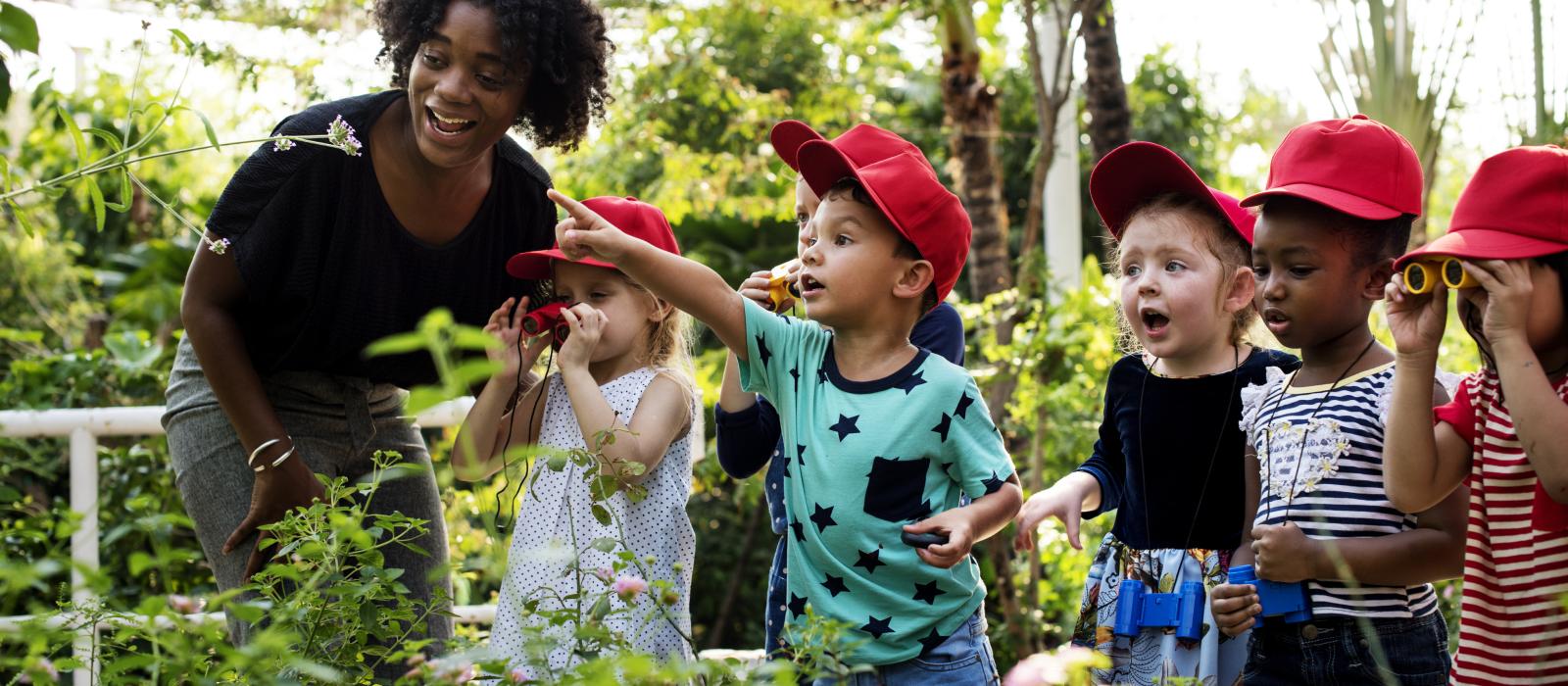Nonformal School or Community Environmental Education Programs

Nonformal environmental education encompasses a broad range of delivery formats, from day camps to school visits, adult education programs, and after-school programs. They may be offered by a diverse range of organizations, from community groups, service organizations, government agencies, nature centers, zoos, aquariums, museums, and youth development organizations.
Generally, Nonformal education refers to educational activities that usually take place beyond the traditional K–12 school system and curriculum. Nevertheless, school groups often comprise a large fraction of the audiences and the programs may take place as classroom visits or field trips. Programs may take place in a variety of contexts, such as parks, forests, classrooms, school yards, vacant lots, neighborhoods, wildlife sanctuaries, and community gardens. Program types may include interpretive programs, guided explorations, training workshops, and community outreach and education. Nonformal education is flexible, adaptable, and responsive to the needs of the learners and the community.
Non-formal education programs take place in a variety of settings including:
- Daycamps, school, or public programs offered by environmental centers, nature centers, science museums, wildlife sanctuaries, land trusts, and various types of environmental nonprofits.
- Cultural institutions: Museums, libraries, and other cultural institutions often provide nonformal education programs, such as workshops and lectures, to the public.
- Community centers: Many non-profit organizations and local governments offer education programs in community centers to reach a wider audience.
- Youth organizations: Non-formal education programs aimed at youth development are often run by youth organizations, such as scouting groups, youth clubs, and youth centers.
Careers in non-formal education typically involve facilitating learning and skill development for individuals outside of the traditional school system. Some examples of jobs or careers in nonformal education include:
- Outdoor Education Instructor: Outdoor education instructors lead wilderness education programs, such as camping and hiking, and teach skills such as navigation and wilderness survival.
- Museum Educator or interpreter: Museum educators design and implement educational programs and workshops for visitors of museums and cultural institutions.
- Community Educator: Community educators work with non-profit organizations and local government to design and implement educational programs for communities.
- Youth Development Worker: Youth development workers design and run programs aimed at the personal, social, and educational development of young people.
- Trainer/Facilitator: Trainers/facilitators work in various settings, including the workplace, to design and deliver training programs on specific skills or knowledge areas.